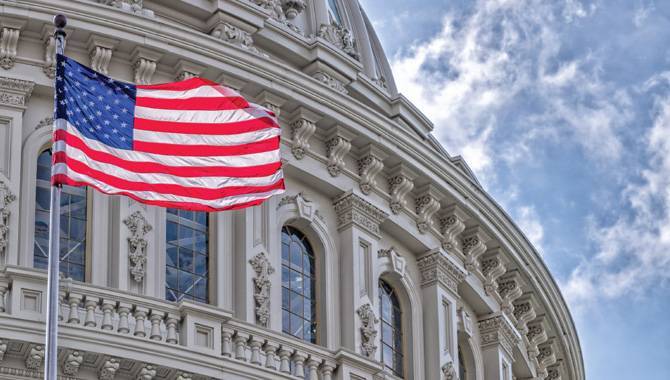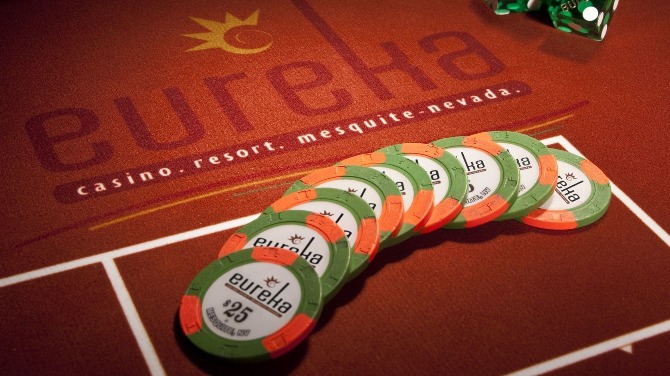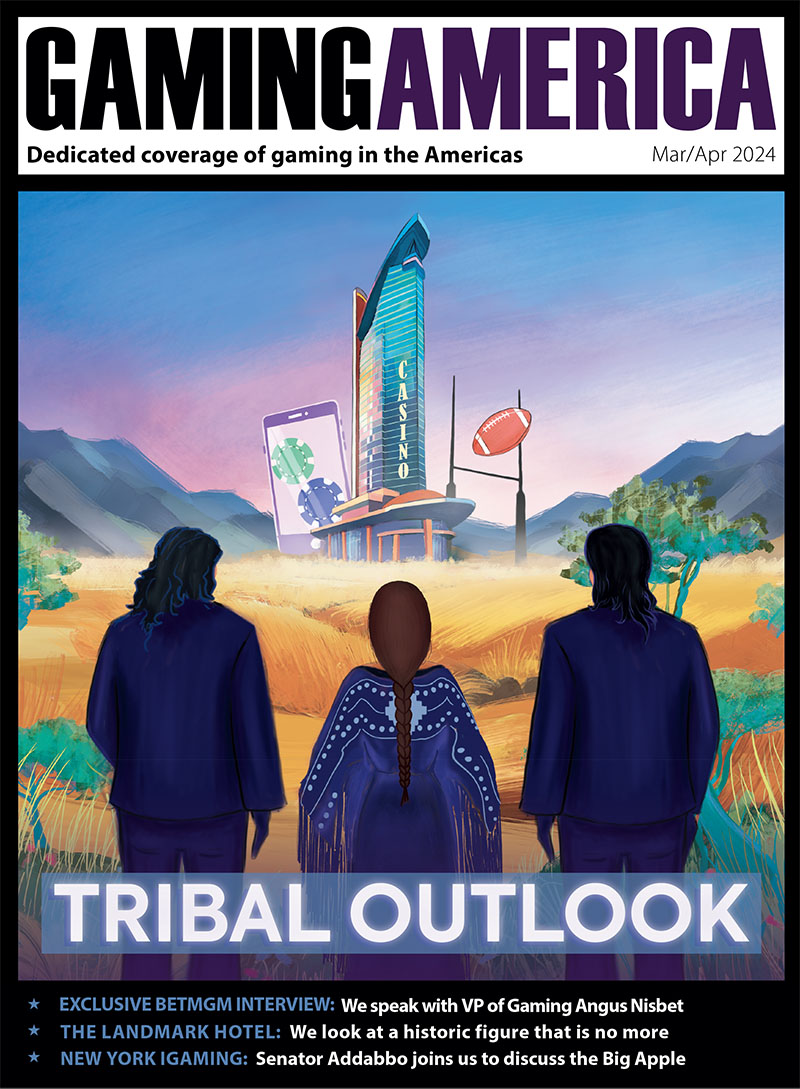
Nobody was able to predict anything about 2020, but in the hopes of bringing some clarity back into our lives this year, I will try to discern how the Biden administration will view the gaming industry.
Although there was more than $1bn wagered on the Presidential election by foreign nationals, President-elect Biden himself doesn't appear to have a personal appetite for gambling. Unlike Donald Trump, who has owned casinos and currently has real estate investment in Las Vegas (Trump Tower), President-elect Biden’s recent and frequent trips to Nevada were strictly campaign events, soliciting support from union members and pointing out how stimulus funds had been held up by his predecessor. At least for those in the hospitality industry, the focus of these visits underscored the desperation of beleaguered workers whose lives have been decimated by resort and restaurant closures, and convention and special event cancellations leading to dramatic declines in visitor volume and gaming revenues.
The consensus was that President Trump understood and had empathy for brick-and-mortar casino operators like himself. However, it’s expected that the Biden administration would be more vocal about the plight of the average worker. That attitude will certainly be a mixed-bag for the gaming industry.
Of greatest immediate importance to the resort sector is whether there will be a mandate to impose a national lockdown on non-essential businesses. While in most jurisdictions, liquor stores and marijuana dispensaries were deemed to be essential, as readers may recall, the casino industry was clothed by Washington bureaucrats in the trite and discredited, “sin industry” apparel.
Surprisingly, casinos, with remarkable economic contributions to state economies, were not deemed essential. They were purposefully omitted from the initial guidelines for the $2trn Cares Act funding, and it took some forceful lobbying efforts by the American Gaming Association and individual gaming companies until the authors of the eligibility requirements partially relented. Even with that, Payroll Protection Plan (PPP) distributions were only allowed to the smaller and mid-sized properties. While some tribal casinos resisted closures based on their sovereign status, thankfully, some of the initial Cares Act funding also went to Tribal Governments in the form of block grants, which in some instances could be passed on to their tribal gaming outlets.
Will a Biden administration be able to break the logjam on additional financial assistance? The most recent proposal currently under consideration is for $908bn, far less than amounts bandied about in late summer. The proposed new “stimulus” provides some relief in the form of unemployment compensation benefits for furloughed workers and a supplemental $300 per week stipend for four months, but the draft did not contain a forgivable PPP loan component, except for small businesses with fewer than 300 employees that have suffered revenue declines of 30% or more.
One of the biggest concerns for the Biden administration will be the national economy. He inherited the remnants of a bustling business climate, and although there is rhetoric about a nationwide mask mandate, for that reason alone, it’s unlikely that a Biden administration will impose a nationwide lockdown on casinos, especially now with a vaccine beginning its distribution. However, that doesn’t mean that occupancy restrictions or selective closures will not continue, as these measures originate from directives by State Governors as they perceive the need to address health concerns within their borders. As an example, Nevada’s Governor continued 25% capacity restrictions for casinos and required reservations-only for in-person dining at area restaurants through mid-January 2021.
On a worldwide basis, casino revenues have shown some slight improvement. But revenue numbers are dramatically lower than 2019. Most significantly impacted is the VIP side of the business. While most travel restrictions have been lifted between the Peoples Republic of China (PRC) and its satellite Macau, and considering the strident relationship between the Trump administration and the PRC, it may take some time for the governments in both nations to allow for the free-flow of gaming customers. While everyone expects President-elect Biden to attempt to improve relations between the two countries, at least for the foreseeable future, travel to the United States by PRC residents, including prized VIP customers, will not resume any time soon. It’s likely that other worldwide visitation will be similarly sluggish as international airline flights slowly readjust and COVID-19 travel restrictions are re-examined. Las Vegas-based casino companies with properties in Macau may find some needed relief for their bottom lines as Macau slowly returns to its pre-COVID-19 pre-eminence.
Minimum wage, maximum impact
As mentioned earlier, the Biden administration’s emphasis on the worker could pose a difficult financial burden on the gaming industry. President-elect Biden pledged to raise the minimum wage to $15 per hour. Many casino jobs and those in the service sector are supplemented by customer gratuities and for that reason, employees are paid substantially less. A $15 minimum wage will mean an immediate jump from the current $9 an hour minimum wage in Nevada ($8 if health insurance is provided), making it nearly twice as costly to provide the same level of service to its customers, especially in a resort setting. Added to the total will be increased employer contributions for Social Security, workman’s compensation, health insurance, meals and many other benefits, which are predicated on total wages. The result will be a brick-and-mortar gaming industry either scrambling to adjust to lower profit expectations or actions to reduce full-time equivalents (FTE), perhaps using more part-time workers without benefits. We have already seen the automation of lower skill jobs at fast-food restaurants and kiosks used for hotel check-in that can handle the entire process, including ending of the room key. What is certain is that resort operators will lean more heavily on the available online activities for gaming revenue.
High wire act
From 1961 to 2011, the US Department of Justice (DOJ) through the Office of Legal Counsel, maintained that the Federal Wire Act, which prohibited interstate transmission of wagering information, applied to all forms of gaming including wagering on all sporting events and contests conducted in interstate and foreign commerce. Despite this broad interpretation, the DOJ applied the Wire Act nearly exclusively to bookmakers and sports betting activities, asserting that, with notable exceptions in 2011 when operators in the offshore poker industry were charged (Black Friday), the reason for non-enforcement was based solely on a lower prosecutorial priority. However, also in 2011, the DOJ recognized that a few courts were beginning to take exception to the DOJ’s expansive reading of the Wire Act. Consequently, the DOJ reversed their prior stance by affirming that the Wire Act only applied to sports wagering in interstate and foreign commerce.
That view persisted until late 2018 when in a tortured opinion from the Office of Legal Counsel, the DOJ reversed its 2011 stance back to the view that it held beginning in 1961 when the Wire Act was first adopted, making transactions using electronic communications illegal even where the bettor and betting service provider were in the same state. This caused an uproar among state lotteries, which could no longer rely on the 2011 opinion to conduct remote intrastate lottery product sales. Cheered on by other online interests, they challenged the 2018 opinion in a New Hampshire Federal District Court, which ruled in their favor, confirming at least for that judicial circuit that the DOJ’s 2018 rewrite was flawed and the Wire Act only applied to sports wagering.
The DOJ has since appealed that decision. However, it’s anticipated that the Biden administration, under new leadership, will both rescind the 2018 opinion and withdraw its appeal. This should provide a clear path for expanded use of internet communications for other gaming products such as intrastate online games, interstate online games (other than sports) where conducted by licensed gaming operators in each state, and expanded uses of interstate-wide area progressives by commercial and tribal gaming operators.
Key Drivers
With expanded gaming nationally following New Jersey’s successful effort to invalidate the Professional and Amateur Sports Protection Act, there will be increased pressure on the DOJ to use its enforcement powers to limit the market presence of illegal bookmakers; as legal operators are becoming significant contributors to state economies, particularly in the recent economic downturn. With more states legalizing that form of gaming, regulated sports wagering handle in October 2020 alone was $3bn, the highest it has ever been. And despite the economic downturn, each month seems to produce new wagering records. Because these new legal sports wagering options seemed to have captured the interest and excitement of so many US customers, we can expect to see some increased effort by the DOJ in the next administration to enforce existing federal laws against foreign sports wagering operations that flout US law at the expense of legitimate regulated gaming markets in the US.
Tribal considerations
The Biden Presidential campaign included a promise to appoint Native Americans to high-level government positions; but at press time, he has yet to name his pick for Secretary of the Interior, which is a pivotal role for Native Americans, or Assistant Secretary-Indian Affairs (AS-IA), a job which also includes running the Bureau of Indian Affairs. A Native American has never served as Secretary, but Mr. Biden is under great pressure from Indian Country to name Native American or Alaska Native individuals for both roles. Former AS-IA and Chickasaw Nation citizen Kevin Washburn, the Dean of the University of Iowa College of Law, is running Mr. Biden’s Interior transition team, and is well-versed in Indian gaming as he previously served as the General Counsel to the National Indian Gaming Commission.
Of primary interest to Indian country is the US Supreme Court’s 2009 Carcieri v. Salazar decision, which disallowed the United States from accepting new trust land for many tribes. The decision disqualified tribes that could not document that they were a recognized Indian tribe since the1934 enactment of the Indian Reorganization Act. President-elect Biden has repeatedly expressed support for a “clean” legislative fix that would not impose additional conditions on tribes seeking gaming approvals.
A new trust-land policy will immediately impact at least one major tribal gaming project, the Mashpee Wampanoag Tribe’s proposed casino project in Taunton, Massachusetts. In 2015, the Obama administration placed the casino site into trust status and declared it eligible for gaming. In 2018, the Trump Interior reversed the decision. The Tribe sued the Department, but earlier this year, Interior declared it was planning to record transfer of the land out of trust, revoke the reservation proclamation, and annul the gaming eligibility determinations. In June, a federal court ordered Interior to reconsider and enjoined its decision to take the land out of trust. Under Democrat control again, the agency will likely drop its litigating position and reissue the decision, allowing the project to go forward. However, administrative trust land acquisitions are always subject to litigation threats, and a more “originalist” Supreme Court may determine that Interior’s interpretation falls outside the boundaries of its Carcieri decision.
Living in a fantasy
If you ask the daily fantasy sports (DFS) industry, they will tell you they are strictly skill-based and not engaged in gaming. However, the IRS recently issued two memos stating that chance pervades, making the entry fees received from players on DFS activities subject to taxation because they are gambling. A federal excise tax has long been imposed on gaming with three original exemptions for table games, slots and pari-mutuel racing, and later in the 1980s for state lotteries. For all other gaming activities, particularly sports wagering, there’s a .25% federal excise tax on the betting handle. However, if the activity has not been authorized by the state, the excise tax is 2%. As an example, the Attorney General of Texas has declared that DFS is gambling and is therefore illegal under Texas statutes. To the extent that other states have not acted to license DFS, the 2% tax could be imposed, but at the very least, the IRS would claim that the .25% excise tax would be owed. This is the predicament in which DFS finds itself, and although there’s still the possibility of settlement or a tax court reversal, it’s highly unlikely the Biden administration will intervene.
The gaming industry is very nimble and can always find a way to work well with any Presidential administration. The challenges faced by the gaming sector have more to do with the health risks caused by COVID-19, the impact of a weaker economy on disposable income, the recovery of the transportation industry and the willingness of people to congregate in large groups at event settings. We have already seen there is pent-up demand to enjoy life to the fullest, an outlook impervious to federal policy decisions but driven by conquering our own insecurities, real or imagined.
















